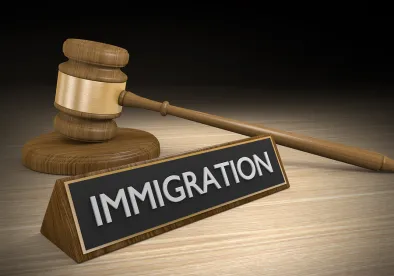On Monday, June 26, 2017, the Supreme Court of the United States partially revived part of President Trump’s second Executive Order (EO-2) mandating a temporary travel ban from six Muslim-majority countries for 90 days, which will be effective immediately. EO-2 also sought to suspend the U.S. Refugee Admissions Program and limit the number of refugees in this fiscal year. The Supreme Court also granted certiorari to review the lower court decisions of the Fourth and Ninth Circuits that issued injunctions prohibiting the implementation of President Trump’s EO-2 beginning March 26, 2017. Oral arguments are scheduled to take place in the Fall of 2017, when the Supreme Court’s next term begins.
President Trump issued EO-2 on March 6, 2017, which, among other things, restricts entry of nationals from six designated countries—Iran, Libya, Somalia, Sudan, Syria, and Yemen—for a temporary period of 90 days. Iraq, which appeared in President Trump’s first Executive Order (EO-1), was removed from EO-2 because Iraq agreed to provide additional information about visa applicants to the United States, and accept the return of Iraqi nationals who were ordered removed from the United States. EO-2’s 90-day temporary travel ban was originally set to begin on March 16, 2017, and expire on June 14, 2017. On June 14, President Trump issued a memorandum to Executive Branch officials declaring the effective date of EO-2 to be the date on which the lower courts’ injunctions are lifted or stayed.
At issue in the Supreme Court’s decision today are Sections 2(c) and 6 of EO-2. Section 2(c) calls for the 90-day temporary travel ban prohibiting the entry of nationals from the six-Muslim majority nations to the United States. In EO-2, President Trump determined that the temporary travel ban of nationals from these six countries was necessary to ensure that dangerous individuals did not enter the United States while the United States developed “adequate standards” for applicants who are seeking visas to enter the United States. Section 6 freezes the U.S. Refugee Admissions Program and prohibits the admission of refugees into the United States.
In today’s decision, the Supreme Court held that President Trump can enforce the 90-day temporary travel ban that prohibits entry of nationals from the six designated countries “who lack any bona fide relationship with a person or entity in the United States.” The Supreme Court limited Section 2(c)’s scope, stating that this section “may not be enforced against foreign nationals who have a credible claim of a bona fide relationship with a person or entity in the United States.” The Supreme Court held that the same standard should be applied to Section 6, which bars refugees from entering the United States. Specifically, Section 6 “may not be enforced against an individual seeking admission as a refugee who can credibly claim a bona fide relationship with a person or entity in the United States.”
The Supreme Court did not exhaustively list what sorts of credible claims of a bona fide relationship with a person or entity in the United States qualifies to be removed from EO-2’s purview, but noted that the relationships at issue in the present cases qualified. Specifically, the Supreme Court noted that individuals who were subject to the travel ban of EO-2 must have a close familial relationship with a person in the United States. “A foreign national who wishes to enter the United States to live with or visit a family member . . . clearly has such a relationship.” For entities, the individual must have a “formal, documented” relationship with the entity that was not formed simply to evade the EO-2’s reach. Foreign nationals who were accepted into a college or university, or accepted an offer of employment from an American company would qualify as a credible claim of a bona fide relationship according to the Supreme Court. Section 2(c)’s 90-day temporary travel ban begins today, June 26, 2017, and will expire on Sept. 24, 2017.
While it is not clear how U.S. Department of State and U.S. Customs and Border Protection will interpret and enforce the Supreme Court’s decision today, employers should note that a foreign-national employee from one of the six designated countries may be refused an employment visa or admission into the United States if the foreign national does not have a credible claim of a bona fide relationship with a U.S-based person or an American entity. It is important for impacted foreign-national employees who plan to travel internationally during the next 90 days to carry with them evidence of their employment relationship, which can include a signed offer of employment, employment verification letter, and recent pay statements, among other documents. Foreign-national students who plan to travel internationally may also carry with them their Form I-20 and a letter of enrollment issued by the academic institution. Finally, in light of this decision, for impacted individuals to secure a visa at a U.S. Consulate abroad or gain admission into the United States it is important to be able to document a close familial relationship with an individual in the United States. The U.S. Department of Homeland Security confirmed today in a statement that it will release additional details, particularly to potentially impacted nationals, on implementing EO-2 after consulting with the U.S. Departments of State and Justice.



 />i
/>i
